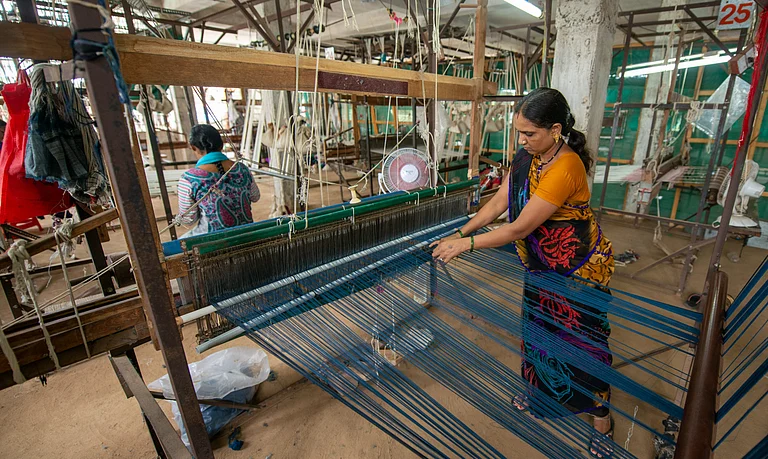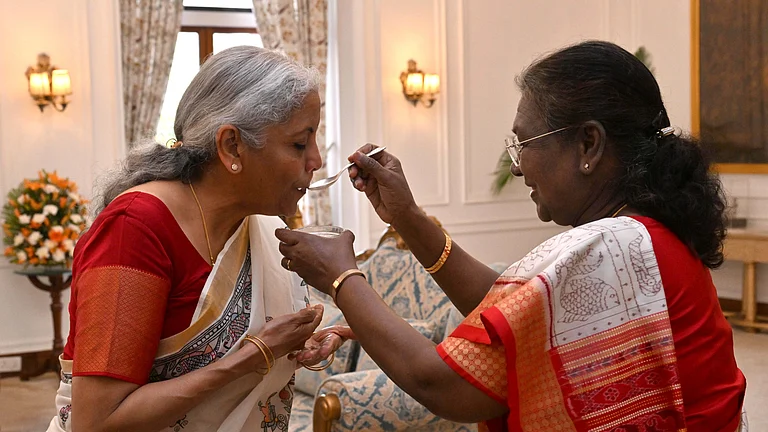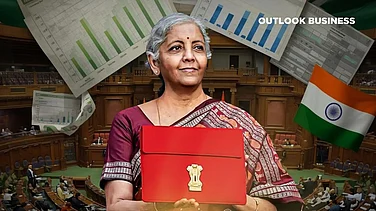It has become commonplace, indeed absolutely expected, for business leaders in India to sing the praises of any economic policies of the Modi government—even when they are clearly wrong and misguided, like the demonetisation of November 2016. This is especially true of the Union Budget speeches, which are usually followed by paeans of praise from corporate honchos perpetually anxious to please those in political power.
This time around, there was a change, with less enthusiasm—largely because of new or higher taxes on capital gains and trading derivatives. The stock market plunged immediately, recovered somewhat, and has since been volatile. The rupee also depreciated against major currencies. Business leaders have been more muted in their responses, and we are hearing fewer of the breathless cries of “gamechanger!” or “masterstroke!” that were once standard.
If the less enthusiastic corporate response is only due to the relatively minor new taxes, it is a foolish reaction that fails to recognise the massive and growing inequality in the country and the need to do much more to address it. But maybe there is more to it. It could be that business leaders are finally beginning to realise that the current economic strategy of the Modi government is not fit for purpose, worsening many of the deep imbalances and problems within the economy, and ultimately not even in their own self-interest.
By now, it is fairly clear to most people that the Indian economy is much more fragile than the Modi government would like everyone to believe. The K-shaped recovery meant that the aggregate GDP increased mainly due to exploding incomes at the top of the distribution, creating extraordinary gains for the rich and for those sections of the upper middle class that benefited from the limited trickle-down. Meanwhile, the material lives of the majority of people actually deteriorated in significant ways.
The central challenges are growing unemployment; insecure and low-paying livelihoods in both agricultural and non-agricultural activities; rising prices of essentials, especially food; new adversities in the form of climate change that particularly affect cultivation and informal workers; and the increasing desperation of the youth as they experience an expensive and frustrating higher education system with almost no guarantee of proper jobs thereafter.
These problems obviously feed into society, creating increasingly unpleasant and potentially violent social and political tendencies. They also inevitably rebound on the formal sector and large corporations in the form of sluggish or even falling consumer demand. The low private investment rates, highlighted in the Economic Survey despite a corporate sector “swimming in excess profits” and all the incentives provided through lower tax rates, are surely due to this lack of domestic demand. This increasing inequality can work for some time, but it has clearly become economically counterproductive, in addition to being socially and ethically undesirable.
Insofar as aggregate growth has been kept buoyant, it is largely because of public capital expenditure, which did indeed expand over the past decade. However, this has under-performed in recent years. Consider what the numbers show: the Centre’s capital expenditure was budgeted to be more than Rs 10 lakh crore in 2023-24, but there was a shortfall of more than Rs 52,455 crore in actual spending. This makes the promise of a further increase in such spending to more than Rs 11 lakh crore a bit suspect.
Similarly, the assistance to state governments for capex, in the form of “Grants-in-Aid for creation of capital assets,” fell short by more than Rs 66,201 crore from the budgeted outlay. Since this number now includes the central transfers to states for the rural employment programme under MGNREGA, the figures need to be interpreted with even more caution.
In any case, public capital expenditure in infrastructure generates one type of growth, but it is unlikely to create more employment or improve overall living conditions until much later. To address the urgent problems already mentioned, which would also tackle the issue of inadequate demand, it is necessary to undertake different and more immediate measures.
Foremost among these is a proper package for MSMEs, to begin undoing the ravages of successive blows from demonetisation, the poorly planned and implemented GST rollout, and the harsh Covid-19 lockdowns that were imposed with almost no compensation. Since MSMEs already employ around 85 per cent of the workforce and are expected to account for even more in the future, this is essential.
Farming needs to be made financially viable, which it currently is not. Therefore, the farmers’ demands, including a guarantee of the Minimum Support Price, need to be taken seriously and properly budgeted for. Public employment is not only essential for providing better public services to all citizens but also has significant catalytic effects. Investing in health and education, which are major potential employers, can generate substantial multiplier effects on employment.
Unfortunately, this Budget indicates that the government intends to do precisely the opposite of what is needed. Spending on health, nutrition, food security, education, and employment programs is largely set to remain unchanged in nominal terms compared to the previous year’s actuals, implying a decline in real terms. This will only exacerbate problems of unemployment and the rising cost of living, leaving cultivators to continue suffering.
The continued centralisation of finances is surprising, given the message of the recent general elections. The share of transfers to state governments in total central government spending (including Centrally Sponsored Schemes, Finance Commission grants, and other grants and loans) decreased from an already low 22.1 per cent in 2022-23 to just 20.8 per cent in 2023-24.
Special assistance to Andhra Pradesh and Bihar is limited, and this aid is likely to be offset by reductions in requirements for other states. Additionally, Opposition-led states may continue to face deprivation of even basic transfers, as evidenced by West Bengal being denied funds for MGNREGA.
All in all, this Budget is unlikely to please anyone in India. Even Big Business, which has benefited from favored fiscal treatment for many years, would do well to recognise the warning signs.
(Jayati Ghosh is a development economist. Views expressed are personal)


























